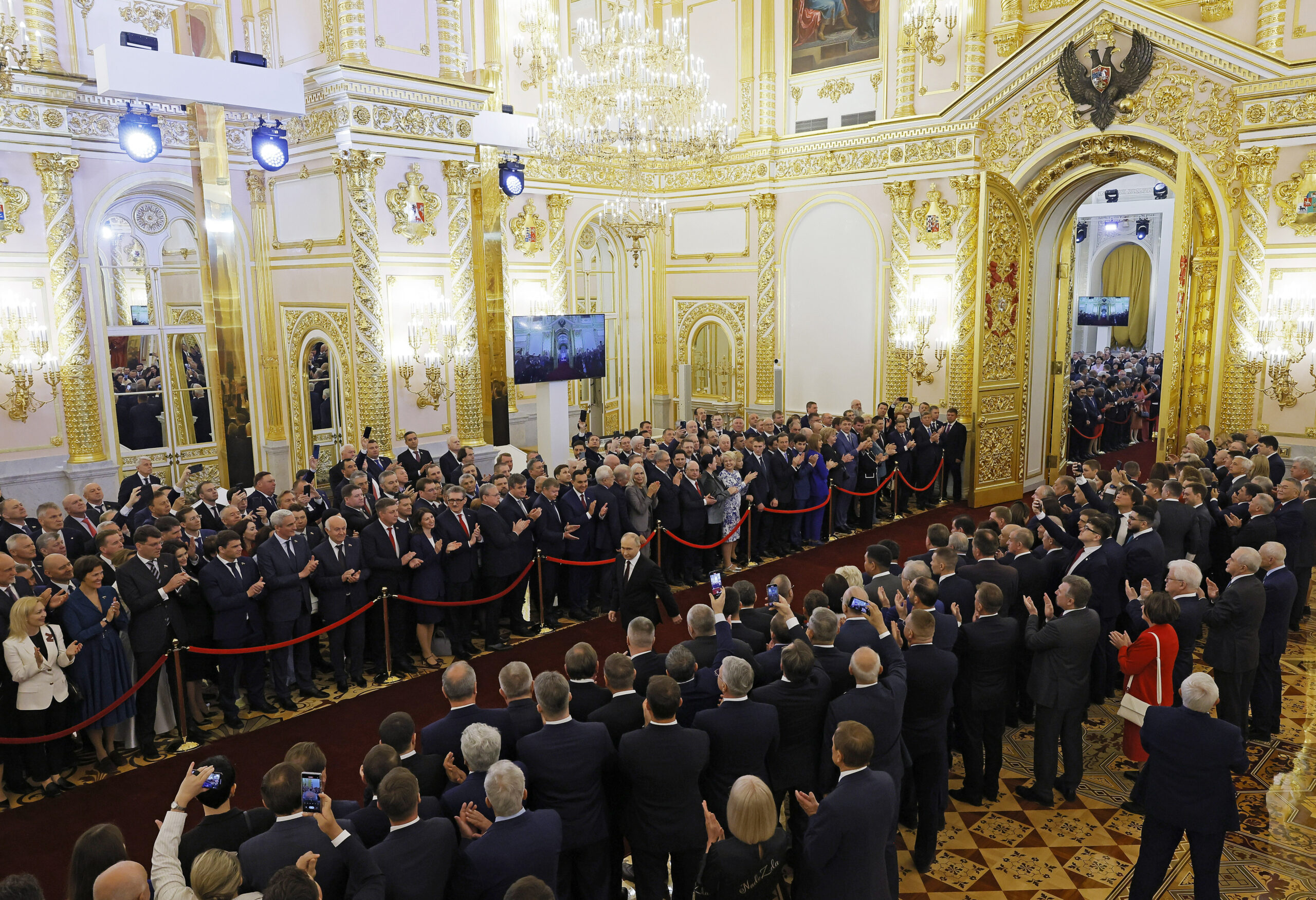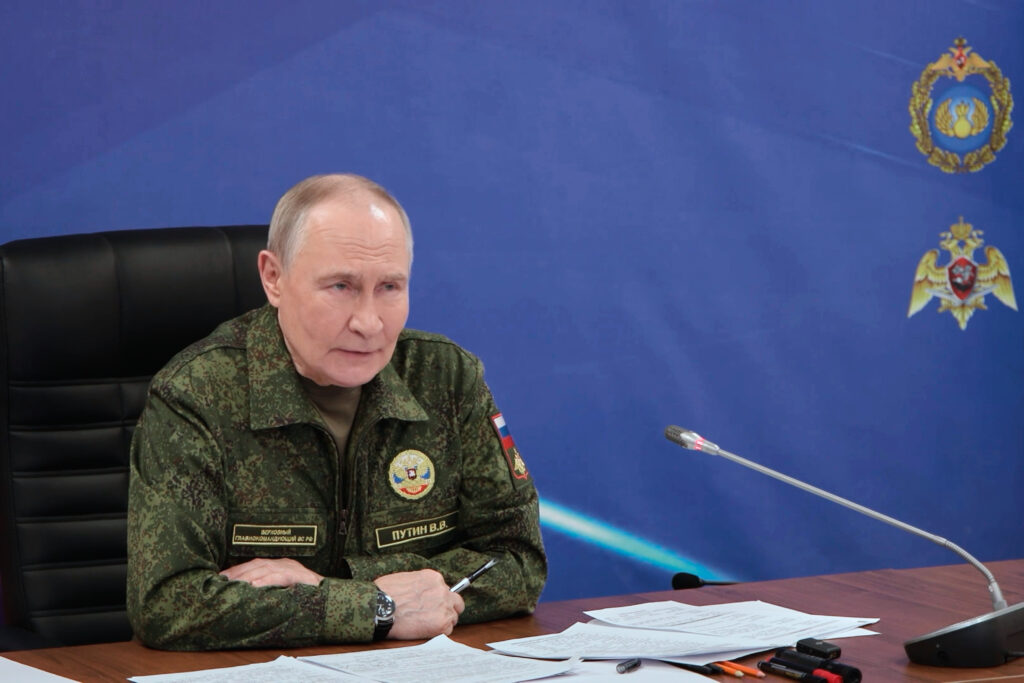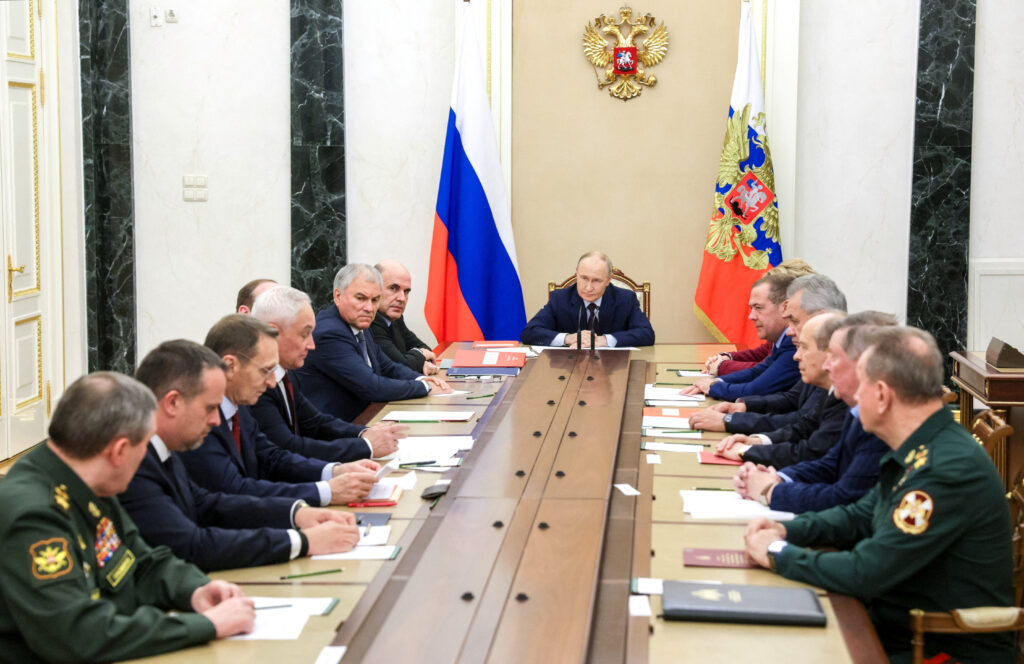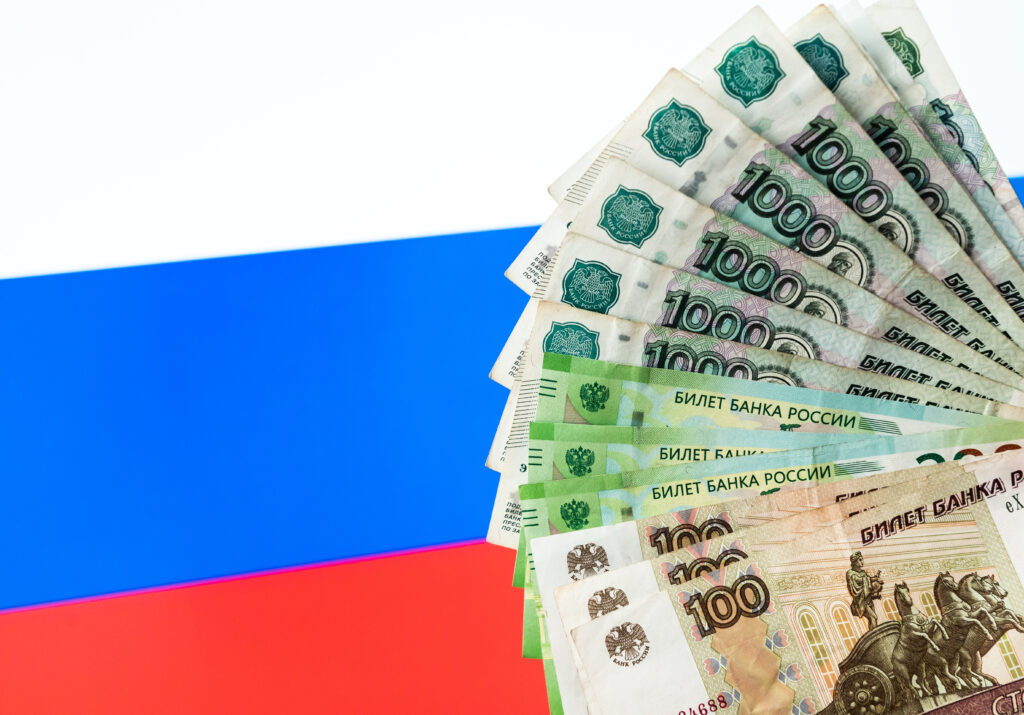Collectivism is often considered to be a pillar of Russian authoritarianism and a national character trait dating back to Soviet times or even the imperial era. Putin refers to it in his speeches, and journalists often invoke this concept to explain how Putin’s regime keeps the population under control. In these cases, Russian collectivism is contrasted with Western «individualism» and its ideals of a «self-made man,» autonomy, and self-reliance.
Ironically, the flipside of autonomy and self-reliance is another characteristic of Russian society — atomization. Public opinion polls consistently show that Russians don’t trust their fellow citizens and rely primarily on themselves and their closest circle of friends and family. A low quantity of horizontal connections — i.e. low social capital — explains why Russians fail to build up successful resistance to authoritarianism and continue to put up with a regime they often criticize.
It is confusing enough to understand whether Russia is too collectivist or too individualist. But if we look closer at the «West,» it becomes even more confusing. Although Russian official and opposition discourse often portray the West as individualist, Western leaders do not seem to rely on the appeal of individualism so much. Take any speech of a Western leader, be it the leaders of the United States, allegedly the most individualist country, or France, Germany, or Great Britain. None of them talks about the virtues of individualism and self-reliance, and all of them, in one way or another, talk about national unity and the need to collectively rise to the challenges their country faces.
Even if we go down from the political Mount Olympus and look at citizens’ everyday lives, we will see that collectives and communities play a vital role on the ground. «Being a good citizen» in the West often means valuing and prioritizing the interests of the community or the nation over your own egoistic interests. For example, in Norway, there is a centuries-long tradition of volunteering called «dugnad.» About 60% of the population engage in it in a given year producing about 5% of national GDP. No wonder this volunteering is considered part of the national character and «dugnad» was voted Norway’s word of the year in 2004. Other countries may not have a specific word for it, but traditions of volunteering and community work exist in all societies in some shape or form. Collectivism, thus, is ubiquitous in the West, even though the words people use to describe it vary.
Does the above mean that characterizing Russia as collectivist is wrong? Many Russians and people studying the country intuitively understand that there is something special about Russian collectivism, and that is also connected to authoritarianism. However, the usual route of discussing collectivism through the contrast with individualism does not bring us closer to an understanding of this connection. Even in the most individualist countries, people live in communities, i.e. collectives. In politics everywhere in the world, an individual can accomplish little unless she speaks on behalf of a group and the group recognizes that. Thus, instead of blaming collectivism per se, let’s think about the characteristics of collectivism that can make it problematic.
There are two features that make Russian collectivism conducive to authoritarianism. First, unlike in many other countries, Russian public life is dominated by one collective rather than governed by many. Second, that dominating collective is the state rather than a non-state entity. Both features are important, and in combination, they make it very difficult to build robust institutions to restrain the power of the state and bring its actions in line with the will of the people. Let’s look at each of these features separately in more detail.
Lack of pluralism
Collectivism in Russia means not so much prioritizing collective interests over individual ones but rather prioritizing the interests of one collective, the Russian state, over all other collectives. The Russian state does not want the whole society to be atomized. Rather, it works to mobilize those who are ready to follow the state leadership of collective action while repressing and atomizing others who want to act collectively and independently from the Russian state. For example, the youth who were ready to join pro-Kremlin youth movements has been encouraged to act collectively under the leadership of the state, while the youth who joined Alexey Navalny’s movement have been severely repressed.
The state has also been hijacking grassroots initiatives that were becoming popular in an effort to keep its own monopoly on leading collective action. One of the most vivid examples of this from the post-Soviet period is the Immortal Regiment movement. It was conceived by the journalists from the independent Tomsk television company TV-2 as a grassroots movement that sought to commemorate collectively family members who fell in the Great Patriotic War and elevate family histories in the public discourse. The theme of the Soviet people’s sacrifice in the Great Patriotic War fitted very well with Russian official discourse. However, the replacement of state-directed narratives with a family history’s focus on private life and collective action focused on the people rather than the state, and so was an unwelcome development. Very shortly after the movement’s popularity grew, the Russian state hijacked the leadership role in the movement and redefined its goals from cultivating private family histories to glorifying state narratives about the war.
Even with more defined demographic and social groups, political loyalty is often more important than mere belonging to a specific group. This is why, over the course of Russian history, we have seen some non-Russian ethnic groups brutally suppressed and persecuted while elites of other non-Russian ethnic groups are seamlessly incorporated into the Russian state. Similarly, the Russian authorities attack LGBTIQ+ communities while having various LGBTIQ+ people working for the state propaganda machine. Or, the jailing of some Russian nationalists, while others serve as ideologues of the state. From the point of view of the Russian state, different groups should only be allowed to exist in Russia’s political space if they are ready to act collectively under the leadership of the Russian state.
While pluralism by itself does not guarantee democracy, a lack of genuine social pluralism helps autocrats by turning political competition into a farce. Without multiple constituencies that are united by a common identity and are able to act collectively based on distinct political interests, the idea of representative institutions is hollowed out. Although Russia has many political parties, very few of them if any, have well-defined constituencies who expect those parties to advance their interests in the political arena. The Communist Party had such a constituency in the 1990s but during the Putin era, it lost its opposition potential. Instead of representing their constituencies and restricting the power of the executive, deputies in the Russian Duma and members of the Federation Council became the team of the president rubberstamping his decisions. These members of parliament are accountable not to the people, but to the executive branch that monopolized the right to speak on behalf of the nation.
Distinctiveness of the state as the leader of collective action
Dominance of one collective in the public space, however, does not always lead to authoritarianism. There are nation states with relatively little diversity (e.g. Scandinavian countries) that are robust democracies with perfectly functional parliaments. To convert the monopoly on collective action into authoritarianism, it should be the state—rather than the nation, religious group, or another entity that monopolized that leadership position.
The state is different from any other collective in how it enforces group norms. Any group has some rules by which its members should abide: in religious communities, women are often expected to follow a restrictive dress code; in an academic community, scholars are expected to give proper credit to the ideas of others and not plagiarize. In most groups, the enforcement of those rules lies with community members — for example, the enforcement of religious norms, lies with the community of believers. Similarly the enforcement of professional ethics norms lies with the professional community in question. The fear of ostracism by the rest of the collective makes people follow group norms even if they don’t like them. At times, such enforcement can be brutal for an individual: think about honor killings in traditional societies or smear campaigns and bullying in more modern ones. However, when the only tool of enforcement is the community, it serves as a check on its leader’s decisions: a decision widely seen as unfair by community members would be impossible to enforce.
In contrast, the state does not rely only on its citizens to enforce rules. It has a designated group of society—the state apparatus—that enforces those rules using its monopoly on violence. For example, a leader of a religious community could not unilaterally come up with a random tax that community members see as unfair as she would have no way to enforce it. For the state, however, it is much easier to do so as it has the enforcement apparatus. As the state matures, state officials, police, secret services, and the army become the privileged layer in the collective that can enforce the leader’s decision even if the members of that collective would be unwilling to impose it on themselves and others.
In most societies, the state is just one social institution that competes for influence with religion, territorial communities, ethnic groups, or social movements. However, if the state successfully repressed most competing parties and remained the only legitimate leader of collective action, it plays two contradictory roles: it both claims to be representing its citizens as their leader and can act against their will. And the citizens are in the situation when the only leader of collective action they trust who could lead their resistance to the abuse is the abuser himself.
While the Russian state cannot completely unroot alternative identities and centers of resistance, its efforts to do so are currently paying off. Non-compliant collective action is heavily repressed in the country, and a large majority of citizens declare their support of Putin’s actions. The situation is now grim, but we should not forget about another universal trait of human psychology: no one enjoys being forced into compliance. Even in the most collectivist societies, autonomy of personal choice is valued by individuals. The double-think that was widespread in the Soviet Union when people would express support to the party in public and criticize it in their kitchens is an example of indestructible value of personal autonomy. And as Putin’s regime becomes more repressive, it also breeds hidden discontent and resistance is a similar way as it happened with the Soviet Union.
What is to be done?
I argued here that the problem in Russia is not so much collectivism, but the monopoly of the state on the leadership of collective action. To counteract this trend, the opposition forces and their supporters will be better off not glorifying Western individualism or anything Western for that matter but rather focusing on two strategies.
- Cultivating social and political pluralism
The connection between democratization and pluralism is not as obvious as it may seem. Bitter social divisions and lack of unity can also prevent democratization and damage established democracies. However, in the current Russian context, cultivating the presence of different constituents and amplifying their autonomous voices is healthy. With a lot of discussions of anticolonial agenda, the first kind of pluralism that comes to mind is ethnic and cultural one, and there is no doubt that amplifying the voices of different ethnic groups in Russian political discourse is extremely important. There are also other kinds of pluralism that can help: from the pluralism of political platforms to regional pluralism, which has already showed its potential in Russia in the 1990s. Cultivating pluralism does not mean that different opposition groups should not join their forces; rather, it means that they should develop mechanisms to build joint strategies without the expectation of full unity and realize that pluralism is a virtue for Russia.
- Separating the idea of the Russian nation from the Russian state
Right now, for many Russians, the state is a sacred entity. Desacralization of the state and replacing it with an authentic idea of a civic nation is necessary to break the vicious circle of abuse by the state and give people real agency. It is, of course, a Herculean task. But the scale of the task is not an argument against its value. Rethinking the country’s violent past is only possible if the Russian nation can think of itself as an actor separate from the Russian state and, thus, able to resist the Russian state. Drawing that separation between the state and the people does not mean denial of Russia’s wrongdoings or the role of the Russian population in them. Instead, such separation would provide society with a way out of learned helplessness and show that, while it cannot change the past, it can shape how its future will look like. I do not have a foolproof recipe for building this authentic civic identity, which can only be done through trial and error. But I strongly believe that the discourse based on Western values and individualism has much less potential for bringing a meaningful long-term change to Russia than an authentic civic identity separate from the state even with a strong collectivist component.










